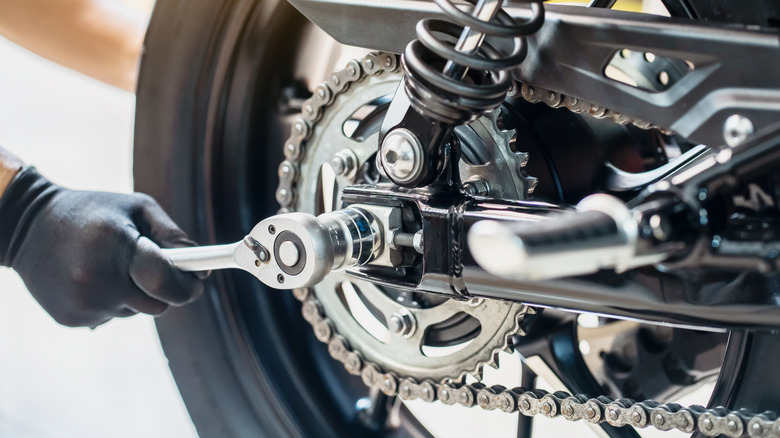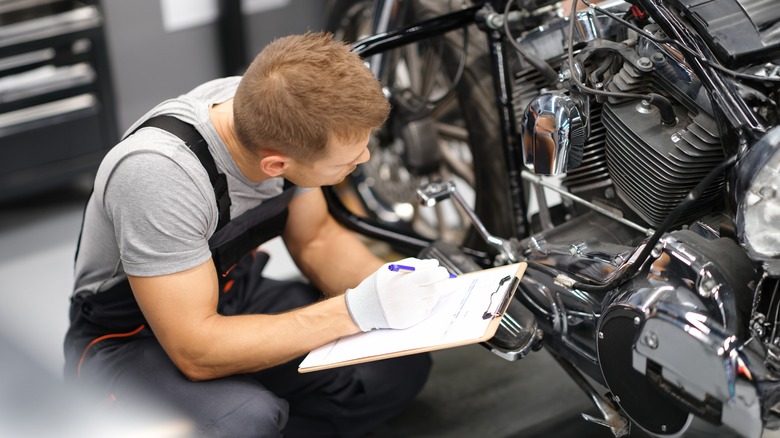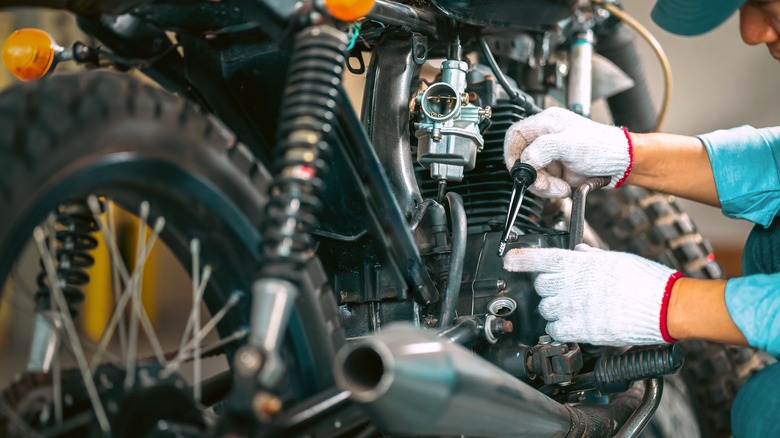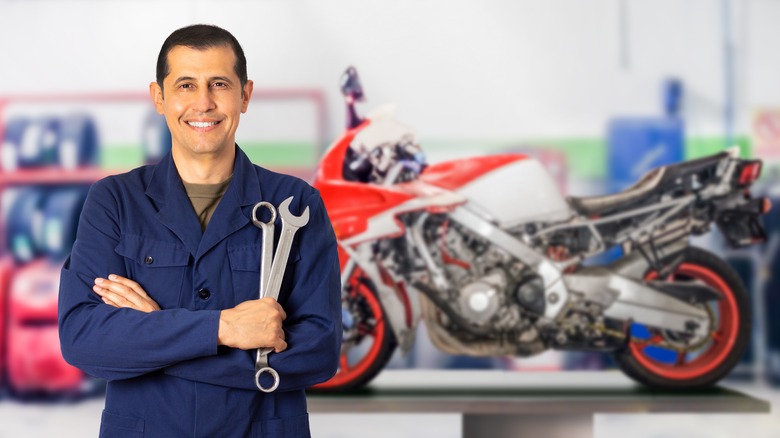What To Know When Looking For A Motorcycle Repair Shop Near You
Whether you've got a new motorcycle or an old one, the time will eventually come when you need to get some work done. Maybe you've got a few aftermarket upgrades that you'd like to have installed, a bit of paintwork that needs to be retouched, a fluid that needs to be flushed, or maybe you just need your tires changed. Sure, a lot of this work could be done at home, but many riders don't have the garage space, free time, tools, or know-how to work on their bikes (and not everyone is a DIY motorcycle mechanic), so that's where a top-notch repair shop comes in.
Finding the right repair shop can be difficult. Whatever service you're looking for, you want to ensure your bike and your wallet are properly cared for. You want to avoid high prices, poor work, or, worst of all, damage to your bike. But how do you make sure your motorcycle is in good hands? There are a few great sorting tools that will help you distinguish good repair shops from less reputable locations, so let's look at some strategies that will help you make an informed selection and get the work done right with minimum hassle.
Look for good reviews
Finding a shop with impressive customer feedback can save you a big headache in the long run. Begin with a quick Google search for motorcycle repair in your area, keeping in mind how far you're willing to travel to get your bike fixed. Check out Yelp, Google Reviews, or any other review platform you trust (several social media sites host reviews, too, so pick the one you think is best) and start at the top.
More than just checking out the star ratings of a potential repair shop, you should read the reviews and see what customers are saying. Look for mentions of the type of work you're getting done, and see if there are any customers who've had similar mechanical work done at your shop — it's especially encouraging to see a review where other customers have had the same problem on the same model bike, and things went well for them. If your shop does good work, be sure to post your own positive review. It helps repair shops get new business — especially independent shops or mechanics that deal with ultra-specific niches.
Never underestimate the advice of a good friend, either. Ask your riding buddies where they get their motorcycle work done and who their contact is at a shop. Word of mouth is a form of review, too — maybe the oldest kind.
Find a shop with the right equipment
Some motorcycle shops get by with a small set of wrenches and only a lift or two for working on bikes. Some mechanics are so adept at repairs that they could probably tear apart most bikes with a flat-head screwdriver and a 10-millimeter socket. But not every bike is as easy to work on as it may seem.
A small, local repair shop may be a good go-to for oil changes, tire changes, chain adjustments, and other small maintenance, but if they don't have the tools to diagnose modern electrical problems properly, you should keep that in mind. That's where something like a larger (possibly corporate) repair shop comes in. Their hourly labor rate might be higher, but if they have more expensive and specialized equipment, it's worth a premium.
If you know what your bike needs, call ahead and ask if the shop can handle your specific problem. Some shops have techs who specialize in repairs like carburetor rebuilds or electrical diagnostics, and their time is precious. Calling ahead gives you the opportunity to ask a few questions of the right person and potentially make an appointment to discuss your repairs without wasting your time or the mechanics.
Look for a friendly and knowledgeable staff
The quality of a shop's work is the most important part of a motorcycle repair, but it's not the only consideration. How easy (or difficult) it is to communicate with the staff at your repair shop is also a big part of the equation.
A shop with friendly techs/mechanics or friendly front office staff makes getting repairs done much easier by providing accurate estimates for the time and cost a repair will require. A knowledgeable staff can explain to you what the charges are on your final invoice and any special instructions for using your motorcycle. They can explain, in simple terms, things like the maintenance required for your bike before its next service, how a new part works, or what products they'd use to keep a motorcycle running correctly.
The process is significantly more stressful if the repair shop is dismissive, rude, or doesn't return your messages about getting work done on your bike. This street goes both ways, however. Being friendly with your repair shop goes a long way toward establishing rapport. Be kind, patient, and respectful with your shop — especially if they're doing highly specialized work. You may even get a discount if you show up with some baked goods or a few sandwiches. At the very least, you'll likely have a much more pleasant experience when your bike needs a tune-up.



